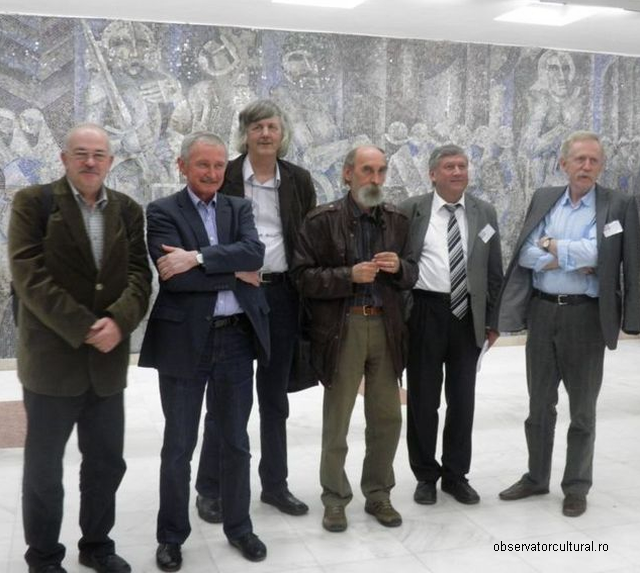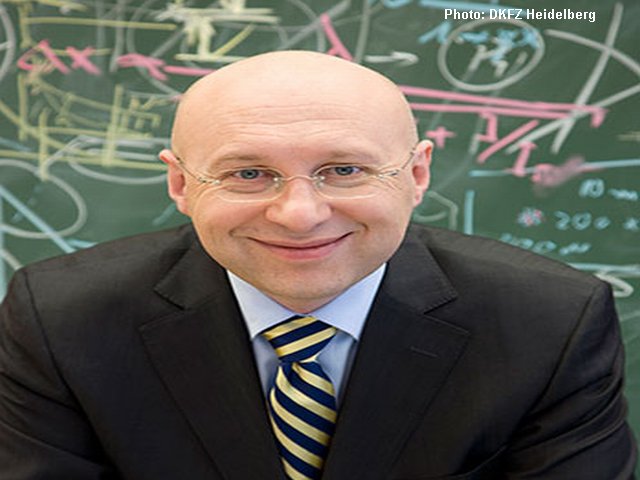Romanian-born writer Herta Muller, who is a member of Romania’s ethnic German community, was granted the Nobel Prize in 2009, which put this community in the limelight in Romania, in particular the Banat Action Group (Aktionsgruppe Banat in German). This was a group of poets Herta Muller used to frequent when she was still living in Romania. Set up in Timisoara in 1972, it consisted of nine members: Rolf Bossert, Werner Kremm, Johann Lippet, Gerhard Ortinau, Anton Sterbling, Albert Bohn, Richard Wagner, Ernest Wichner and William Totok. The group was known for their eccentric literary output, which often clashed with the repressive communist regime of the day. William Totok recalls the Soviet invasion of Czechoslovakia of 1968 had a great impact on the members of the group, who were about 17 years old at the time:
“The invasion came at a time when student movements were staging anti-authoritarian protests in the West. We believed it was possible to change the frozen socialist regime and make it more humane. This wasn’t only a propaganda slogan used by the politicians of the time, but a metaphor we all believed could be achieved in reality. For many people, 1968 was a decisive year. For us, this was the start of our literary activities. The 1970s, with their short-lived liberalisation, also had an impact on the ethnic German literature produced in Romania. 30 people made their debut in some of the publications issued by a number of high schools from Timisoara over two years. 10 of them continued to write for a long time afterwards. In 1972, most of these people had already gone to university. I met them in Timisoara, after finishing my military service. We were all trying to get published. The group was officially born in April 1972, at the headquarters of the Neue Banater Zeitung. After long discussions we signed a kind of protocol. The most prominent and the most active of us, whom we regarded as our ideologist and mentor, was Richard Wagner, who also got his first book published in 1973. The literature we wrote was fairly unambiguous. While we didn’t have any aesthetic or political programme, we agreed to come up with a kind of literature that was different from what had been written before, from proletarian literature. Our work was also different from the literature written by well-established ethnic German writers from Romania, trying instead to align ourselves to the trends in the Federal Republic of Germany, the German Democratic Republic, as well as Austria. It was a challenge for us, a group of young people not yet in our mid 20s and claiming to be Marxist and trying to write Marxist literature. It was also a challenge for the country’s political police, the Securitate, which had never been confronted with such a phenomenon before, that is with writers who described themselves as Marxists and leftists. This is why they didn’t know how to react. They were probably thinking that being Marxists, we were on their side.”
The Securitate was, however, keeping a close eye on these young people. 1974 saw the first and last mention of the collective term “the Banat Action Group” in the fourth issue of the Neue Literatur magazine. Unshelved by the Securitate, the publication cemented the reputation of the nine writers as producers of “formalist, negativistic and double-meaning texts” William Totok explains:
“This issue set in motion an entire repressive campaign which culminated with our arrest in 1975 and the dismantling of the group. We were considered subversive and more dangerous than we really were. After 1977, what was left of the Action Group became part of the official literary community in Timisoara. At this time, our activity was in fact 15 times more serious than what we’d done before. We got unbelievable texts published in newspapers, anthologies and books published until 1984 or 1985, when we were banned from publishing.”
Arrested and placed under investigation by the Securitate in 1975, the group’s members were released shortly afterwards, with the exception of William Totok, who remained in prison for nine more months. In the meantime, the Banat Action group had been dismantled. Its members stayed in the country until the mid-1980s, when they emigrated to the Federal Republic of Germany, with the exception of Werner Kremm.

